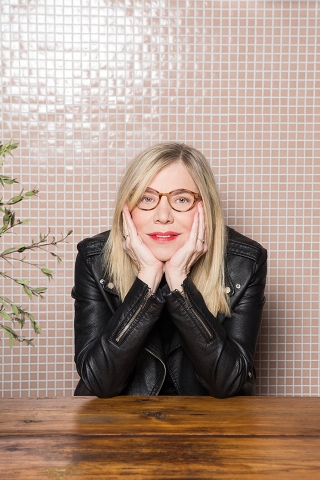Meet the Change Shapers: Changing How We Connect
The past few decades have seen a revolution in how we communicate, creating a world where we can see friends and family across the world at the click of a button. The COVID-19 pandemic has further accelerated the shift towards tele-working, with more workplaces using technology to communicate with their colleagues.
The future potential of augmented and virtual reality has been much-discussed, transforming the way we connect with each other as well as interact with our physical environment. At the same time, tech leaders are envisioning a future where holographic communication will become the new frontier.
Yet the rapid change in how we connect with one another has its downsides. Experts worry about the impact of screen usage and social media, which is more relevant than ever as the first digital generations grow older. Will these new modes of communication affect our ability to create meaningful relationships, and is there any going back from the always-on culture fostered by instant messaging?
Danger or opportunity: what consequences does the coronavirus crisis have in store for the digital industry?
On August 27, The Economist, supported by Mission Winnow, held a webinar to learn more about how we connect with one another, how it is changing, and what this means for the most sociable species on the planet.
The event gathered outstanding professionals and speakers worldwide, namely: Marian Salzman, Senior Vice President of Global Communications at Philip Morris International; Johann Butting, Vice-president at Slack’s EMEA; Helen Joyce, Executive editor of Economist Events and Polly Curtis, Former editor at Tortoise Media.
Marian Salzman opened the discussion and stressed the vitality of the pandemic in helping us ponder the miscellaneous ways of managing and using time.
“We finally killed the agrarian clock,” she said. “This idea that we should rise up with the sun and wind down our workday as the sun sets; instead to recognize that we have a 24-hour day with plenty of time to learn, to grow, to work and to relate. So it becomes a very fluid situation in which you can take those hours and get so much more into a day, or night. During the pandemic, I woke up at 3:30 in the morning and my workday finished at 1:30; it was absolutely luxurious all the extra things I could get into a day.”
A crisis of this kind is unique in the way it forces us to put our habits on hold. Johann Butting said the challenge for companies was to reimagine their business models to survive this type of unpredictable crisis, seeing them urged to rely on creativity and collaboration, and to devise flexible business models.
"The office is no longer the gold standard for productivity,” Butting noted. “A lot of teams have been shown to be more productive during the pandemic than ever before. What we are left to ponder is the nature of the new gold standard: if the office is no longer the one, what can replace it? I think the answer would surely include a combination of reimagined office space, a remote working strategy, and the right toolsets to support employees.”
Salzman noted that the pandemic has shown that firms that value transparency and objectivity often serve as the most effective in the end.
“Companies that are thriving right now are those who put their employees first, the communities in which they exist next, and commercial objectives third. For me, the chief lesson was the injection of humanity: corporations had to become enormously soulful and respectful of the fact that we are all in this together.”
“The pandemic has taught us to better mitigate and only hear what we need to hear; to learn how to tune out, go into our world and manage to participate in those conversations that matter to us and disregard what we consider clutter,” Salzman said. “Learning how to zone out or tune out might be the next extension of the mindful movement. It is vital not to bother with what you consider unimportant.”
By Elene Dzebisashvili
Photo: Mirian Salzman












